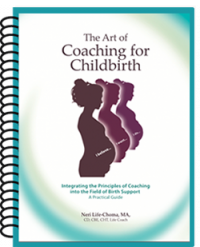
Informed Decision in Birth Support: A Myth of Empowerment?
The cornerstone of modern birth support has been promoting informed decision-making to empower expectant individuals and new parents. Birth workers have emphasized the importance of informed decision-making in childbirth to increase care safety and patient autonomy. The assumption has been that increasing knowledge is the key to clients’ empowerment. However, challenging this strategy reveals a more nuanced understanding of empowerment when supporting birth and postpartum clients.
Could our strategy be counterproductive, leading to disempowering expectant and new parents? I’m willing to take the risk to suggest this provocative idea for the chance to redirect birth workers to adopt a more impactful and empowering strategy.
Informed by what and whom?
The concept of informed decision-making assumes a singular, evidential, authoritative source of information. Yet, the reality of modern obstetrics is far from homogeneous. With diverse medical approaches and evolving practices, navigating the sea of information becomes daunting for expectant parents. Birth workers like me thought: This is where we come in! We ‘know’ what’s evidence-based practice and can help navigate the decision-making process.
But do we? Realty?
In an era of instant access to endless information, expectant Millennials and birth workers face a blitz of opinions masquerading as facts. Amidst this cacophony, distinguishing evidence-based knowledge from anecdotal wisdom becomes increasingly challenging.
Considering the different approaches and the ongoing change in maternal care strategies, two questions surface: What counts as knowledge, and whose knowledge counts?
Empowerment lies not in informed decisions but in guiding individuals to align their choices with their desires and aspirations
Informational overload
In workshops and events I lead, you’ll hear me say that expectant Millennials have Doctor Google, Doctor Facebook, and Doctor YouTube on speed dial. Navigating your childbearing process with such an information overload can be confusing. How does one distinguish ‘expert’ knowledge from ‘folk knowledge’ or myths from reality? What would be an informed decision in this chaos of facts, counter-facts, and opinions presented as facts?
I practiced for over a decade, trusting that the evidential information I shared with my clients would help them make an informed decision before I realized my clients had to choose which “expert” they follow in their decision-making process, which, to my understanding, is disempowering. I now empathize with worried clients who, for nine months, were reassured of their healthy pregnancies by obstetric experts and, throughout their birth, feel they must follow these experts and dismiss the information shared by their doula. I concluded that sharing evidential information won’t result in a behavioral change of clients standing in their power and demanding another pathway or treatment plan.
Join our private Facebook group to learn about our free events and continuing education programs
Authoritative relationships
Birth workers agree that medical figures’ authority relies on their expertise and knowledge. This consensus guided our efforts to dismantle the authority by sharing information with expectant and new parents to empower them. However, when birth workers share information supporting another pathway or maternal care practice, we position ourselves as experts, contradicting experts.
Considering the information overload and the confusion discussed above, we have become ‘the other experts’ providing different information our clients should follow. Our clients engage in the same pattern of relationships with us as with their medical caregivers – authoritative relationships and nothing in this assumption can empower our clients to stand in their power.
Empowerment lies not in informed decisions but in guiding individuals to align their choices with their desires and aspirations.
Reimagining empowerment through relationship
To revolutionize the landscape of birth support, we must embrace a paradigm shift in our clients’ relationships. By relinquishing the role of experts and becoming allies in self-discovery, birth workers can ignite a new era of empowerment. We must redefine empowerment not as acquiring evidence-based knowledge but as the liberation to embrace one’s truths and desires in the childbearing process.
This makes the new relationships we establish with clients our winning strategy. Our relationships must assume our clients are experts and have all the answers. Of course, I’m not suggesting that anyone would avoid searching for evidence, but instead that we engage in conversations that respect and focus on what clients know about themselves – their values, beliefs, perspectives, desired experiences, motivations, and areas of strength, and help them evaluate and assess the evidence-based information using their model of the world and self-knowledge. The practice of this coaching relationship is the most empowering strategy in every coaching field; why should it not be adopted by birth workers as a strategy to coach and empower throughout the childbearing years?
To learn more about this new birth and postpartum support paradigm, join our private Facebook group, where you can register for Birth Coach Method’s free events and continuing education programs.
Photo by Alexander Grey on Unsplash
- Overshadowing the Transformative Essence of Childbirth with Data - July 10, 2024
- Navigating the Epidural Dilemma - May 28, 2024
- Informed Decision in Birth Support: A Myth of Empowerment? - April 29, 2024


